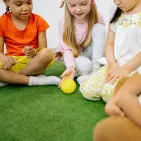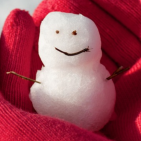News from our research lab
 During the final of 2019, the Centre for Mindfulness’ research lab received excellent news. The Varela research grant application was successful! The funding provider, Mind & Life Institute, is one of the world’s most recognized mindfulness research organizations. We are grateful for this unique opportunity and for the encouraging reviews provided by the panel of international experts in the field who have evaluated our proposal (Mindfulness-based intervention for both parents in families with mothers who have postpartum depression and anxiety) and described it as “highly innovative and impactful”. More details about the project coming in 2020.
During the final of 2019, the Centre for Mindfulness’ research lab received excellent news. The Varela research grant application was successful! The funding provider, Mind & Life Institute, is one of the world’s most recognized mindfulness research organizations. We are grateful for this unique opportunity and for the encouraging reviews provided by the panel of international experts in the field who have evaluated our proposal (Mindfulness-based intervention for both parents in families with mothers who have postpartum depression and anxiety) and described it as “highly innovative and impactful”. More details about the project coming in 2020.
An elevator pitch for this award: Varela grants support scientific and scholarly examinations of contemplative techniques, including mindfulness, with the ultimate goal to reduce suffering and promote human flourishing. They also aim to empower the young generation of scientists in the rigorous scientific examination of the contemplative practices.
News from the world - recently published article
Mindfulness for Autism: Experiences of Children and Their Parents
This qualitative study used interviews to ask children with autism spectrum disorder and their parents about their experiences with the mindfulness program, experienced changes, and how mindfulness works for them. Both children and parents have shared their perceptions and experiences. The intervention used was an 9-week MYmind training.
The main changes children and parents have reported were related to: connecting with peers, pausing, being aware, being in the here and now, letting be, determining a strategy, being and responding calm, and attuning to others.
Some of the answers were:
Children:
“Which parts of the training helped you? The breathing space. I often did that one. I do that one when something goes wrong. Could you give me an example of when you try to do it? When I am angry. Or if I am in a fight with my little brother.”
“Previously I was very strict on myself, for example that I did not allow myself to feel pain. Now it is just being kind to myself. Like: Hey, it may all be there, I do not need to change it. It is troublesome for a while, but I don’t really have to change it.”
Parents:
“We really have those moments together. We also talk about it sometimes, about how my daughter is doing, or what she is feeling. That is quite difficult for her, also because she has autism. But with mindfulness, for example the weather report exercise, this exercise is very useful for her to feel how she is doing. By labeling it with a type of weather we can use that label as a basis to talk about it. That helps her to express herself about how she is feeling. I think this makes us closer, because I better know what goes on in her mind.”
“Mindful parenting was an eye-opener for me. Not that I am applying it every day now, but since the training I am more aware that that is an option, that I clearly have an option. When something is happening that is not nice, I have a choice to become angry, and I am more aware of that moment of choice. That was an eye-opener and I still take it with me. How does that moment of choice look like? Well, I am very aware of what is happening inside me, and what is happening to me in that moment. I feel that I am getting angry or there is something I do not like. I feel I am getting angry, and automatically I would have continued, but by taking a moment, by counting two, three, I can choose another way. By remaining very calm, becoming aware that this is not what my child means or will not yield what I would like, that becoming angry will only work counter-productively. Well, that all happens in split seconds, but the moment I become aware what is happening to me, that I feel it is rising. Well, it is very nice if that succeeds. Do you notice that it succeeds more? Yes, for sure.”
Reference:
Ridderinkhof, A., de Bruin, E. I., Blom, R., Singh, N. N., & Bögels, S. M. (2019). Mindfulness-Based Program for Autism Spectrum Disorder: a Qualitative Study of the Experiences of Children and Parents. Mindfulness, 10(9), 1936-1951.
https://link.springer.com/article/10.1007/s12671-019-01202-x
Sources:







